
Agriculture
June 22, 2024
Philips and Rhiza Foundation Mobile Clinic
Read SolutionImplemented by
Phillips South Africa and Rhiza Foundation
 discontinued
discontinued
Updated on November 30, 2024
·Created on August 27, 2015
The Philips Fan Stove has an internal fan and a rechargeable battery that produces a flame using very little fuel.
Philips Fan Stove (Model HD4012) burns pellets made of sawdust, peanut shells and other agricultural waste and biomass. It features an inbuilt fan and a rechargeable battery that forces air into the top and bottom of the combustion chamber, leaving a smoke-free wood-fire within very little fuel used.
As of 2018, this stove model is discontinued.
Target SDGs
SDG 7: Affordable and Clean Energy
SDG 3: Good Health and Well-Being
Market Suggested Retail Price
$89.00
Target Users (Target Impact Group)
Household
Distributors / Implementing Organizations
Several: Emerging Cooking Solutions, Copperbelt Energy Corporation, First Quantum Minerals, Sandvik, and SKF.
Competitive Landscape
Countries
India, Kenya, Lesotho, Rwanda, South Africa, Tanzania, Uganda, Zambia
Manufacturing/Building Method
The stove was designed by Paul van der Sluis, a researcher at Philips Research Laboratories in Eindhoven. The example was manufactured by Philips in Lesotho, used for a while in Zambia and then shipped to Lund Sweden for evaluation. Philips Fan Stoves were afterwards mass produced by African Clean Energy in Lesotho since 2011 and by Emerging Cooking Solutions also in Lesotho.
Intellectural Property Type
Trademark
User Provision Model
Emerging Cooking Solutions produces the stoves and sells them to distributors such as Copperbelt Energy Corporation, First Quantum Minerals, Sandvik, and SKF.
Distributions to Date Status
The exact number of distribution to date is unknown, however, and for 2013 over 15,000 stoves were sold.
Fuel type
Biomass
Pot type
Both
Thermal efficiency (%)
38.4-39.4
PM emissions (g/MJ delivered to pot)
62.3-147.3
CO emissions (g/MJ delivered to pot)
0.98-2.71
Time to boil (min/L)
17.2-18.1
Design Specifications
Design specifications include the stainless-steel body with a ceramic-inner combustion chamber. At the bottom of the combustion chamber, there is a knob, an inbuilt fan and a battery that is charged either from the grid (when available) or using a solar charger.
It weighs 4.6 kgs and its dimensions (LxWxH) in cms are: 33 x 35 x 33.
Technical Support
Philips has product support representatives on every continent except Australia and Antarctica. For further support, contact Emerging Cooking Solutions.
Replacement Components
Unknown.
Lifecycle
The stove has a 1-year warranty and expected lifecycle is 5 years.
Manufacturer Specified Performance Parameters
This stove meets the energy needs of off-grid families within a cost-efficient, sustainable and market-driven solution. Due to its integrated fan and battery, it utilises minimal wood chips (fuel) and the flame can be controlled by the user. Further key features can be seen on Energcare's website.
Vetted Performance Status
The testing results for the stove are summarized in the Clean Cooking Catalog.
Safety
Keep all flammable items away from the surrounding area of the stove, and do not enclose the area you are cooking within; proper ventilation is always required. Do not touch the body of the stove while in use.
Complementary Technical Systems
None.
Academic Research and References
MacCarty, N., et al (2008). A laboratory comparison of the global warming impact of five major types of biomass cooking stoves. Energy for Sustainable Development. Volume II.No 2.
Jetter, J., Kariher, P (2009). Solid-fuel household cookstoves: Characterization of performance and emissions. Biomass and Bioenergy. Volume 33, Issue 2, February 2009, Pages 294-305.
Pillarisetti, A., et al. (2014) Patterns of Stove Usage after Introduction of an Advanced Cookstove: The Long-Term Application of Household Sensors. Environ. Sci. Technol. 2014, 48 (24), pp 14525–14533. DOI: 10.1021/es504624c.
D.Loo, J., et al (2015). User Perspectives of Characteristics of Improved Cookstoves from a Field Evaluation in Western Kenya. Int. J. Environ. Res. Public Health 2016, 13(2), 167.
Further academic research here.
Emerging Cooking Solutions. n.d. Emerging.se.
The Copperbelt Energy Corporation Plc (CEC). n.d. Copperbelt Energy Corporation Plc.
First Quantum Minerals. n.d. first-quantum.com
Sandvik Group — Home. n.d. Sandvik.
SKF Group. n.d. skf.com
African Clean Energy. n.d. africancleanenergy.com
Roth, Christa, Paul Anderson, Hugh McLaughlin, Thayer Thomlinson, and Kelpie Wilson. 2014. Micro-Gasification: Cooking with Gas from Dry Biomass. Edited by Heike Volkmer. www.bmw.de. Eschborn, Germany : Deutsche Gesellschaft für Internationale Zusammenarbeit (GIZ) GmbH.
Philips High Efficiency Cook Stove | EnerGcare. n.d. EnerGcare.
Clean Cooking Alliance – Clean Cooking Catalog: Results Report – Philips HD4012. n.d. www.catalag.cleancookstoves.org. Global Alliance for Clean Cookstoves.
Global Alliance for Clean Cookstoves . 2014. The Water Boiling Test (Version 4.2.3): Cookstoves Emissions and Efficiency in a Controlled Laboratory Setting. www.1library.net. Global Alliance for Clean Cookstoves.
International Standards Organization (ISO). n.d. ISO’s International Workshop Agreements.
Global Alliance for Clean Cookstoves. 2013. Interim Reporting Requirements for IWA Tiers of Performance. cleancooking.org. Global Alliance for Clean Cookstoves.
Bailis, Rob. 2004. Controlled Cooking Test (CCT). www.cleancooking.org. Clean Cooking Alliance, Shell Foundation.
Compliance with regulations
Testers rated the performance of this stove according to tier rankings established by the International Organization for Standardization (ISO)’s International Workshop Agreement (IWA).
The testers rated this stove on emissions, indoor emissions and efficiency, along with efficiency, energy consumption and fuel use. It was not tested in safety.
Evaluation methods
US EPA: Pollutant Emissions and Energy Efficiency under Controlled Conditions for Household Biomass Cookstoves and Implications for Metrics Useful in Setting International Test Standards Water Boiling Test (WBT) Controlled Cooking Test (CCT).
Other Information
Philips has been recognized for its efforts to promote sustainability.

Agriculture
June 22, 2024
Implemented by
Phillips South Africa and Rhiza Foundation
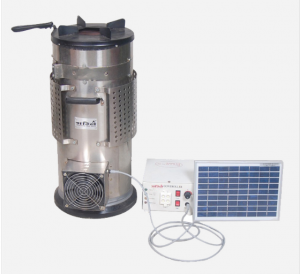
Agriculture
November 30, 2024
Implemented by
NDMI Renewable Energy Private Limited
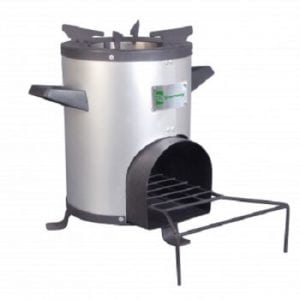
Agriculture
December 3, 2024
Implemented by
Greenway
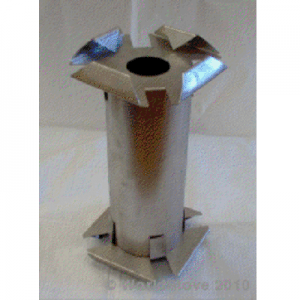
Agriculture
November 30, 2024
Implemented by
WorldStove
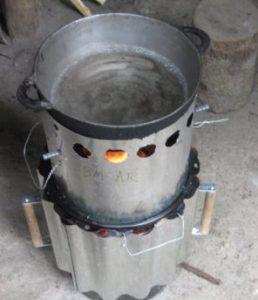
Agriculture
December 29, 2023
Implemented by
SeaChar
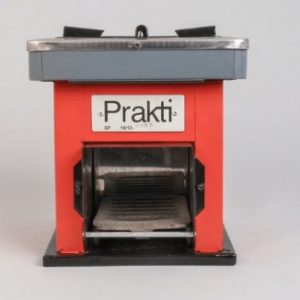
Agriculture
November 19, 2024
Implemented by
Prakti Design
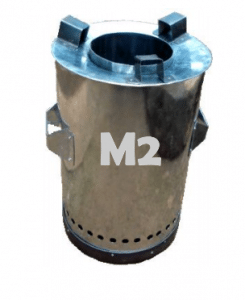
Agriculture
December 28, 2023
Implemented by
Wisdom Stoves
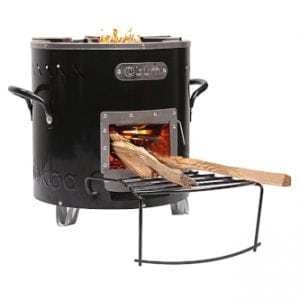
Agriculture
January 10, 2024
Implemented by
BURN Design Lab
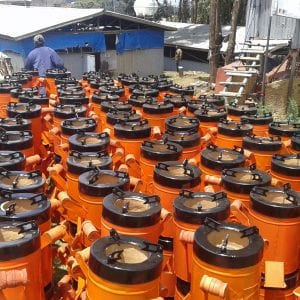
Agriculture
December 3, 2024
Implemented by
Gogle
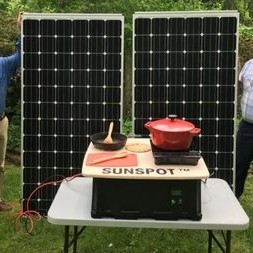
Agriculture
January 27, 2024
Implemented by
Sunspot PV LLC
Have thoughts on how we can improve?
Give Us Feedback